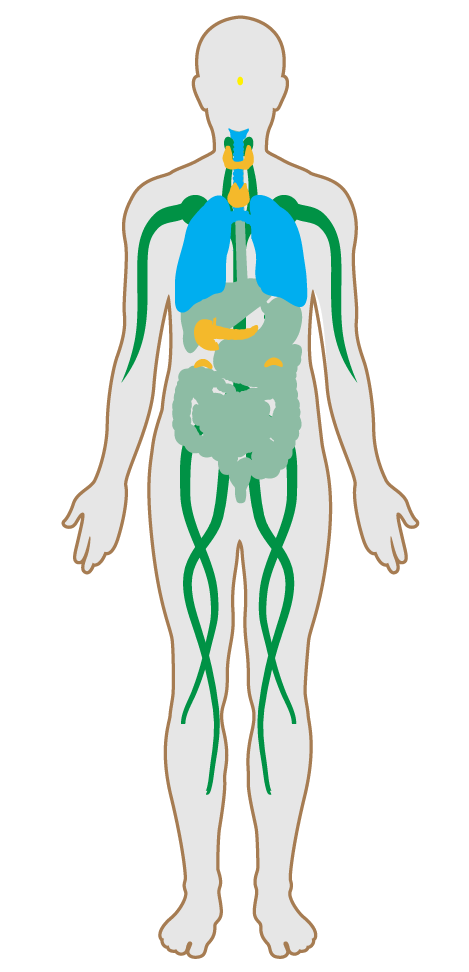Food allergies
- 38 Fruits and vegetables
- 39 Processed foods
- 40 Food allergies
- 41 Hand washing
- 42 Food contamination
- 43 Artificial ingredients
- 44 Nutritional information
- 45 Food advertising
- 46 Safe food preparation materials
- 47 Serving sizes
- 48 Special diets
- 49 Responsible food production
- 50 Food storage
- 51 Food production
- 52 Mindful eating
- P1 Food environment
- P7 Strategic Dining Design
40. Food allergies
To help occupants avoid potential food allergens.
Without clear labeling of ingredients, individuals with food allergies face an increased risk of exposure to allergens. Currently, about 8% of children and 4% of adults in the U.S. have food allergies. Every year, about 30,000 people require emergency room treatment, 2,000 are hospitalized and 150 die because of allergic reactions to food. Because there is no cure for food allergies, sensitive individuals must strictly avoid all foods containing the allergen in order to prevent serious allergic reactions. The FDA requires that all packaged foods explicitly declare the presence of common allergens, and several municipalities and state governments have additional guidelines regarding allergen labeling for prepared foods served in food service establishments.
All foods sold or distributed on a daily basis on the premises by (or under contract with) the project owner are clearly labeled to indicate if they contain the following allergens:

Applicability Matrix
| Core & Shell | New & Existing Buildings | New & Existing Interiors | |
|---|---|---|---|
| Part 1: Food Allergy Labeling | P | P | P |
| Commercial Kitchen | Education | Multifamily Residential | Restaurant | Retail | |
|---|---|---|---|---|---|
| Part 1: Food Allergy Labeling | - | P | O | P | P |
Verification Methods Matrix
| Letters of Assurance | Annotated Documents | On-Site Checks | |
|---|---|---|---|
|
PART 1 (Protocol) Food Allergy Labeling |
Operations Schedule | Spot Check |
| 40.1.a |
The NIAID publication, Food Allergy: An Overview states that one of the most common food allergens to children and adults is peanuts. |
| 40.1.b |
The NIAID publication, Food Allergy: An Overview states that one of the most common food allergens to children and adults is fish. |
| 40.1.c |
The NIAID publication, Food Allergy: An Overview states that one of the most common food allergens to children and adults is shellfish. |
| 40.1.d |
The NIAID publication, Food Allergy: An Overview states that one of the most common food allergens to children, especially infants, is soy. |
| 40.1.e |
The NIAID publication, Food Allergy: An Overview states that one of the most common food allergens to children is milk. |
| 40.1.f |
The NIAID publication, Food Allergy: An Overview states that one of the most common food allergens to children is eggs. |
| 40.1.g |
The NIAID publication, Food Allergy: An Overview states that one of the most common food allergens to children is wheat. |
| 40.1.h |
The NIAID publication, Food Allergy: An Overview states that one of the most common food allergens to children and adults is tree nuts. |
| 40.1.i |
The NIAID publication, Food Allergy: An Overview states that people with celiac disease cannot tolerate gluten. |
